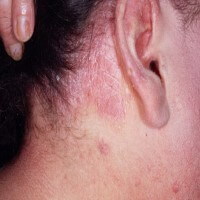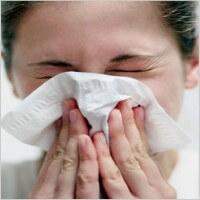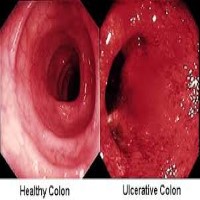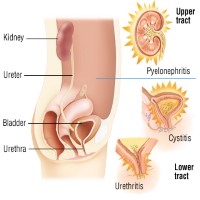Psoriasis

Psoriasis is a chronic recurring disease of the skin. It is characterized by the appearance of plaques, patches, or papules on the surface of the skin. The lesions are usually slightly elevated above the normal skin surface, sharply distinguishable from normal skin, and red to reddish-brown in color.
They are usually covered with small whitish-silver scales that adhere to the underlying eruption and, if scraped off, leave bleeding points. The extent of the disease may vary from a few tiny lesions to generalized involvement of most of the skin where the elbows, knees, scalp, and chest are involved. It is an autoimmune and long-lasting immune disease.
Ayurvedic Description Of Psoriasis
According to Ayurveda, psoriasis is known as Visarpa and appears due to an imbalance of Vata and Kapha. The accumulation of toxins occurs when Vata and Kapha manifest in the skin.
These toxins accumulate in deep tissues like Rasa (nutrient plasma), Rakta (blood), Mansa (muscles), and Lasika (lymphatic). These toxins cause contamination of deeper tissues, leading to Psoriasis.
Signs & Symptoms
- Red, scaly and itchy patches
- Auspitz’s sign (pinpoint bleeding when the scale is removed)
- Koebner phenomenon (psoriatic skin lesions induced by trauma to the skin)
- Skin blisters
- Lesions
Causes and Risk Factors
1) Genetics
Genetics play a role in psoriasis, around 33% of people with psoriasis report a family history of it. One of the identical twins has higher chances of getting psoriasis if the other twin has it, the chances increase by almost 70%.
2) Lifestyle
Consuming excessive alcohol and smoking cigarettes, drying of the skin, using too hot water for bathing, and scratching psoriasis skin lesions can worsen the condition. Infections, climate, seasonal changes, and stress too make the condition problematic.
3) Microbes
Staphylococcus aureus and Candida albicans are the microbes that make psoriasis more worsening.
4) Medications
Beta-blockers, lithium, anti-malarial drugs, NSAIDs (Non-steroidal anti-inflammatory drugs), and calcium channel blockers are some of the drugs that either induce psoriasis or aggravate the condition.
Self Care Tips
- Avoid foods that cause Vata and Kapha imbalance in the body.
- Do not consume foods that have incompatibility with each other, for example- milk with curd, fish and milk.
- Don’t scratch the lesions or blisters on the skin.
- Check the drug’s dose for avoiding any overdose.
- Foods that are rich in salt, sugar and which are bitter and sour in taste need to be curtailed.
- Avoid consumption of alcohol and tobacco.
- Do not curb natural body urges.
To cure psoriasis, toxins need to be removed from body; the digestive process has to be corrected to stop the toxins getting accumulated again. The blood and tissues are affected badly, so they have to be taken care of by the herbal medication to heal them thoroughly.






